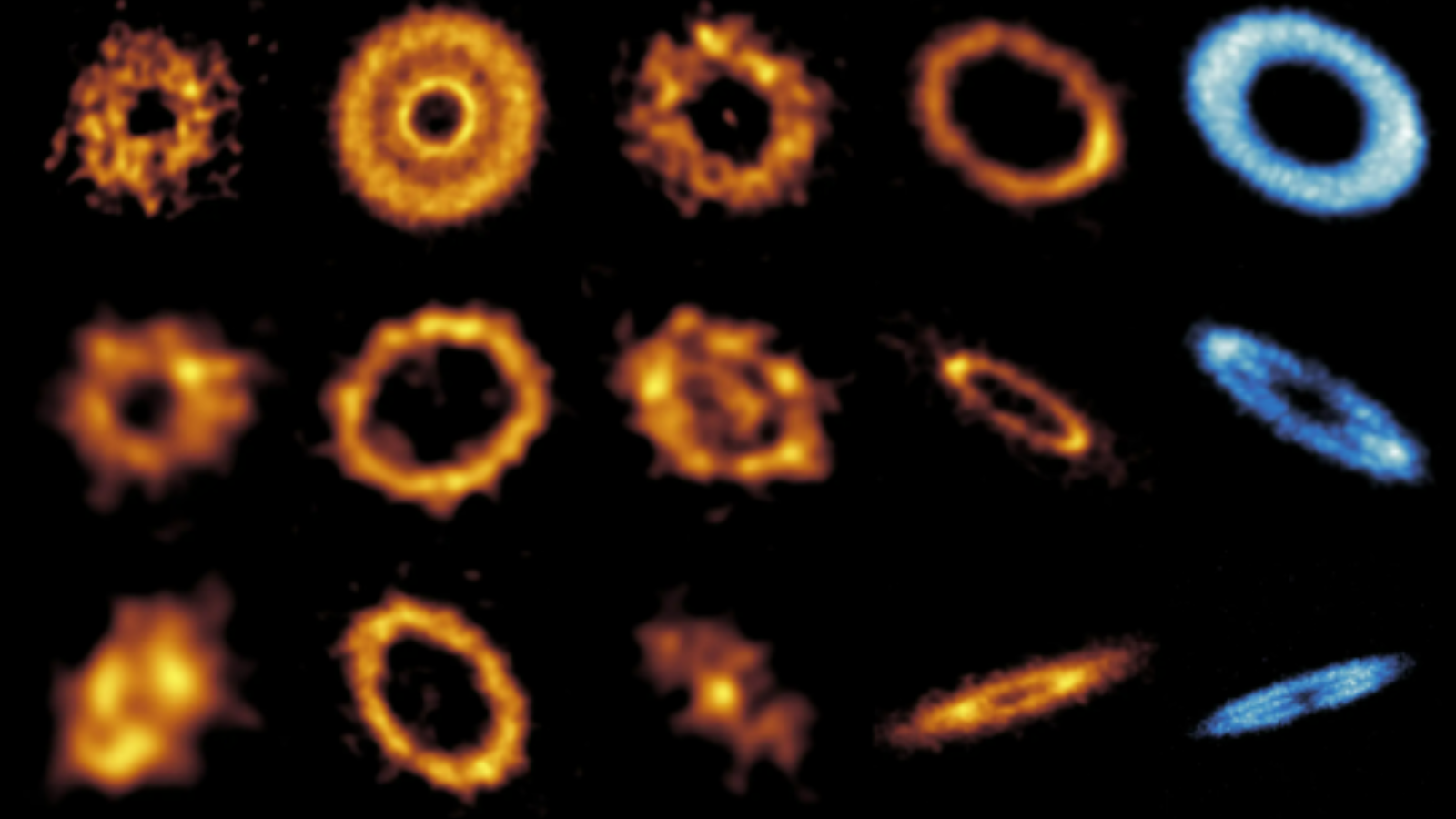Apollo 8 Astronauts Describe Watching Moon Swallow Stars in New Film
A movie following the journey of Apollo 8, the first trip astronauts took around the moon, shares the feelings the crewmembers experienced as they encountered their destination.
The new film, dubbed "First to the Moon," was released on streaming services YouTube and Google Play earlier this month, after a low-profile premiere last December. In an exclusive clip from the movie, the three Apollo 8 astronauts describe what happened as the spacecraft passed out of reach of communications on Dec. 24, 1968, during a planned orbital mission of the moon.
The small spacecraft went to the far side of the moon, which the astronauts could not see during their entire three days en route to their destination, Apollo 8 Cmdr. Frank Borman explained in the video. "We were upside down and going backwards so that we could fire the rocket to slow us up," he said.
Related: Apollo 11 at 50: A Complete Guide to the Historic Moon Landing Mission
They moved into the darkest part of the moon's shadow, which is called the umbra. It was a darkness that is hard to imagine here on Earth. "There was no earthshine, and there was no sunshine, so consequently, when we looked out the window, all the stars came out," Jim Lovell, Apollo 8 command module pilot, said in the film.
At that moment, crewmember Bill Anders added, the trio could see stars everywhere. There were so many stars that even the familiar constellations were washed out (and the astronauts knew these constellations well, since they used star sightings to help calibrate their spacecraft's navigation system).
"And yet, as I looked over my shoulders," Anders said, "I saw suddenly [that] the stars disappeared. A black hole, and that was the moon. And I must say, at that stage of the game, the hair came up on the back of my neck a little."
Breaking space news, the latest updates on rocket launches, skywatching events and more!
Apollo 8 returned safely to Earth and was one of the major milestones in accomplishing the first moon landing. That happened in July 1969 after two other missions practiced docking and lunar descent. The 50th anniversary of the landing, Apollo 11, takes place July 20.
Anders and Borman never returned to the moon. Lovell expected to land on the surface during Apollo 13 in 1970, but the mission was aborted en route after an exploding oxygen tank damaged the service module. Lovell and his crewmates executed a slingshot maneuver around the moon, using the lunar gravity to return safely to Earth.
Overall, NASA landed astronauts on the moon six times before concluding the Apollo moon program in 1972.
- Catch These Events Celebrating Apollo 11 Moon Landing's 50th Anniversary
- Reading Apollo 11: The Best New Books About the US Moon Landings
- Lego's Epic Apollo 11 Lunar Lander Set in Photos!
Follow Elizabeth Howell on Twitter @howellspace. Follow us on Twitter @Spacedotcom and on Facebook.

Elizabeth Howell (she/her), Ph.D., was a staff writer in the spaceflight channel between 2022 and 2024 specializing in Canadian space news. She was contributing writer for Space.com for 10 years from 2012 to 2024. Elizabeth's reporting includes multiple exclusives with the White House, leading world coverage about a lost-and-found space tomato on the International Space Station, witnessing five human spaceflight launches on two continents, flying parabolic, working inside a spacesuit, and participating in a simulated Mars mission. Her latest book, "Why Am I Taller?" (ECW Press, 2022) is co-written with astronaut Dave Williams.
